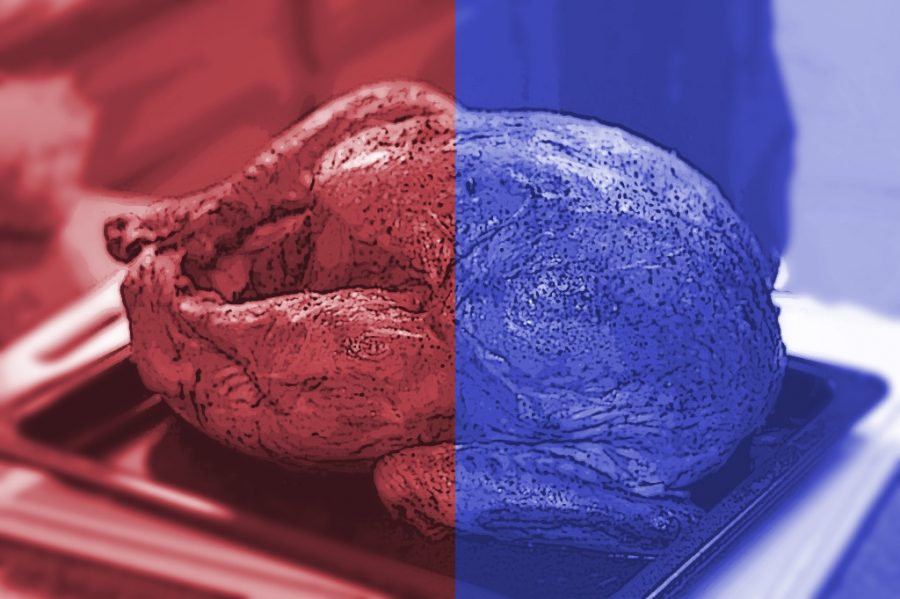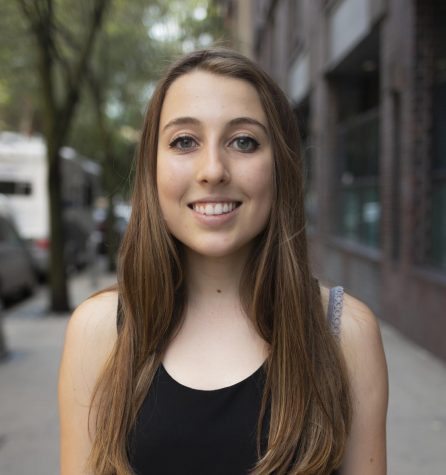Taking Politics to the Thanksgiving Table
With the controversy of the current election, political tension between family members may cause awkward gatherings over the Thanksgiving break.
November 17, 2016
Not all families will give thanks this holiday as political tensions move from television screens to dinner tables.
While protests and events from groups such as the Muslim Students Association sprouted up around campus after Donald Trump won the presidency last week, for some students at NYU, the electoral aftermath reaches beyond the campus: their families’ varying political opinions turn into a point of contention at gatherings.
CAS freshman Charles Lee said that he is worried about Thanksgiving becoming awkward, since his family avoids talking about political matters. Lee said he often feels that his parents don’t respect his strong, left-leaning opinions, and they expressed to him that he should not worry about election results.
“I think we should avoid this so we don’t end up just not talking to each other,” Lee said. “I argued with my mom about something — it was a political opinion — and we didn’t talk to each other for a good, solid four days because it was so tense and we needed to cool off.”
Lee said that these situations are rough since he cares about his parents, yet it is difficult to converse with them when they hold such contrasting political opinions — both think the other’s viewpoint is erroneous.
Steinhardt freshman Molly Dolan also said that her parents voted differently from her, and because of that, there has been some tension within the family. Although she thinks that holidays aren’t ideal for discussions such as this, she said that debating is possible as long as participants can remain peaceful.
“I know that my mom voted for Trump, and at the regular dinner table there was tension,” Dolan said. “I don’t think that the Thanksgiving dinner table is the right setting, because Thanksgiving isn’t about politics — it’s about coming together.”
She said that especially after this tense and divisive election cycle, politics should not be a large portion in the conversations. Dolan said that when she returned home after the election, her dad refused to talk about politics with her, whereas her mother continuously brought up the results and asked why people were upset about the presidency.
This anger is not singular to liberal New York City colleges. People across the nation in large cities such as Los Angeles and Chicago have protested Trump’s win, and many people have been arrested for their advocacy against the president-elect.
LS freshman Teddy Voyer has parents similar to Dolan’s mother — both his parents kept sending him emails about how Trump would save America, so he just deleted them all.
“Luckily I’m spending Thanksgiving with my girlfriend’s family,” Voyer said. “But during Christmas when we’re all together, I imagine there [will] be tension.”
He said this would be the strongest with his conservative family members compared to his left-leaning sister. And Voyer said that because the people in his family know each other’s political affiliations, he does not want to initiate these conversations.
“I feel like between family members, everyone knows the other person’s policy stance,” Voyer said. “I know my uncle is a conservative — I’m not going to change his mind. He knows my sister is a liberal, and he should know she won’t change her mind either. My family doesn’t get together very often, so I think for us personally we shouldn’t talk about things that we know are divisive.”
Turkey might be a Thanksgiving tradition, but for families like these and for others who do not politically agree with each other, politics probably will not reach the holiday table anytime soon.
Email Jemima McEvoy at [email protected].




























































































































































